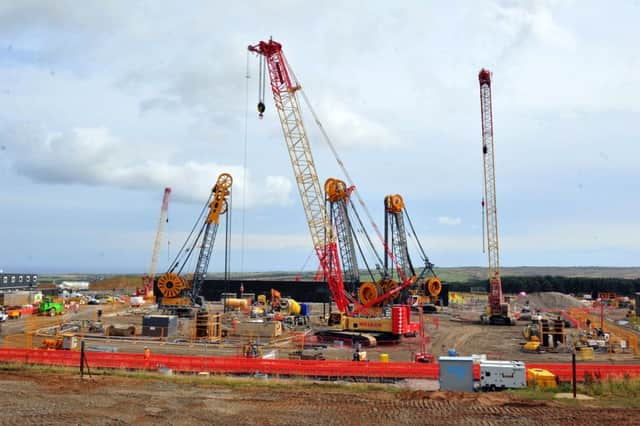Greg Wright: We must swim against tide and offer long term support for UK engineering


It has never been merely a playground for tourists. If you don’t believe me, then I urge you to put on your boots and walk over the moors that lie between Keld and Reeth in the Yorkshire Dales National Park.
You soon find yourself among the ruins of industry, when mining could be a lethal profession. It’s a haunting scene, but a far from uncommon one. The landscape has been shaped for centuries by man’s need to find life’s essentials; food and fuel. We may cherish the stunning views but we mustn’t forget that our National Parks have always been fundamentally places of work.
Advertisement
Hide AdAdvertisement
Hide AdThat’s why everyone who cares about the rural economy must support the giant mine that is being built by Sirius Minerals near the Yorkshire coast. The polyhalite project is one of the biggest private sector investments in the North of England. When completed, it is expected to support thousands of skilled jobs and play a major role in boosting the scale of the UK’s exports. Supporters believe it could even reduce the UK’s trade deficit by seven per cent. Anyone driving past the site of the mine today would hardly know it was there. Apart from the giant cranes, which will disappear when work is completed, the site is largely invisible. The mine will provide long term employment on a safe, sophisticated project. It’s just the type of scheme that Liam Fox, the International Trade Secretary, must want to sell to the world as an example of Britain at its best. It is outward facing and helping to improve global food security.
Mr Fox believes Britain has the potential to be a 21st century exporting powerhouse and he has promised to ensure that his department supports, connects and grows UK companies on the world stage.
However, it’s a sad fact that anyone who takes a long term view of the export prospects for UK engineering firms is swimming against the tide of history. You don’t have to take my word for this. Just pick up a copy of “Tragedy & Challenge” a book which has been written by engineering industry veteran Tom Brown. Mr Brown, who has chaired 15 companies, has written a devastating critique of the damage inflicted on UK engineering by hapless Governments and City investors who were only interested in making a fast buck.
In the book’s early chapters, he recounts his frankly hair-raising experiences as a young manager at a forging maker in the 1970s, which, despite being cursed by terrible management and appalling labour relations, was regarded as one of the most successful British companies of its kind.
Advertisement
Hide AdAdvertisement
Hide AdWorkplace accidents were common and management displayed a “total unwillingness” to authorise capital expenditure. The company summed up all that was wrong with British industry in the 1970s.
Today, Mr Brown believes the best way for the Government to support British exports is to promote the development of businesses like the Mittelstand; the mid-sized family firms that have been an important factor in the success of German engineering. The Mittelstand firms have invested in their equipment and employees, and taken a collaborative approach to labour relations. Britain simply does not have enough companies that are capable of exporting, according to Mr Brown.
He said: “We frequently hear exhortations from politicians for companies to increase exports, and they seem perplexed that there is not more response to their calls, but they make me think of all the UK companies I have known where economic circumstances beyond their control ratcheted down their size or, all too often, closed them altogether.”
The Government can help develop our own version of the Mittelstand by avoiding actions that cause exchange rate fluctuations. But the most effective approach is to shine the spotlight on the virtues of long term family ownership. Companies in the Mittelstand have a sense of social responsibility which they place ahead of short term profit.
This strategy, which also places an emphasis on conservative financing with a suspicion of debt, would serve all UK engineering firms well as we head into the post-Brexit world.